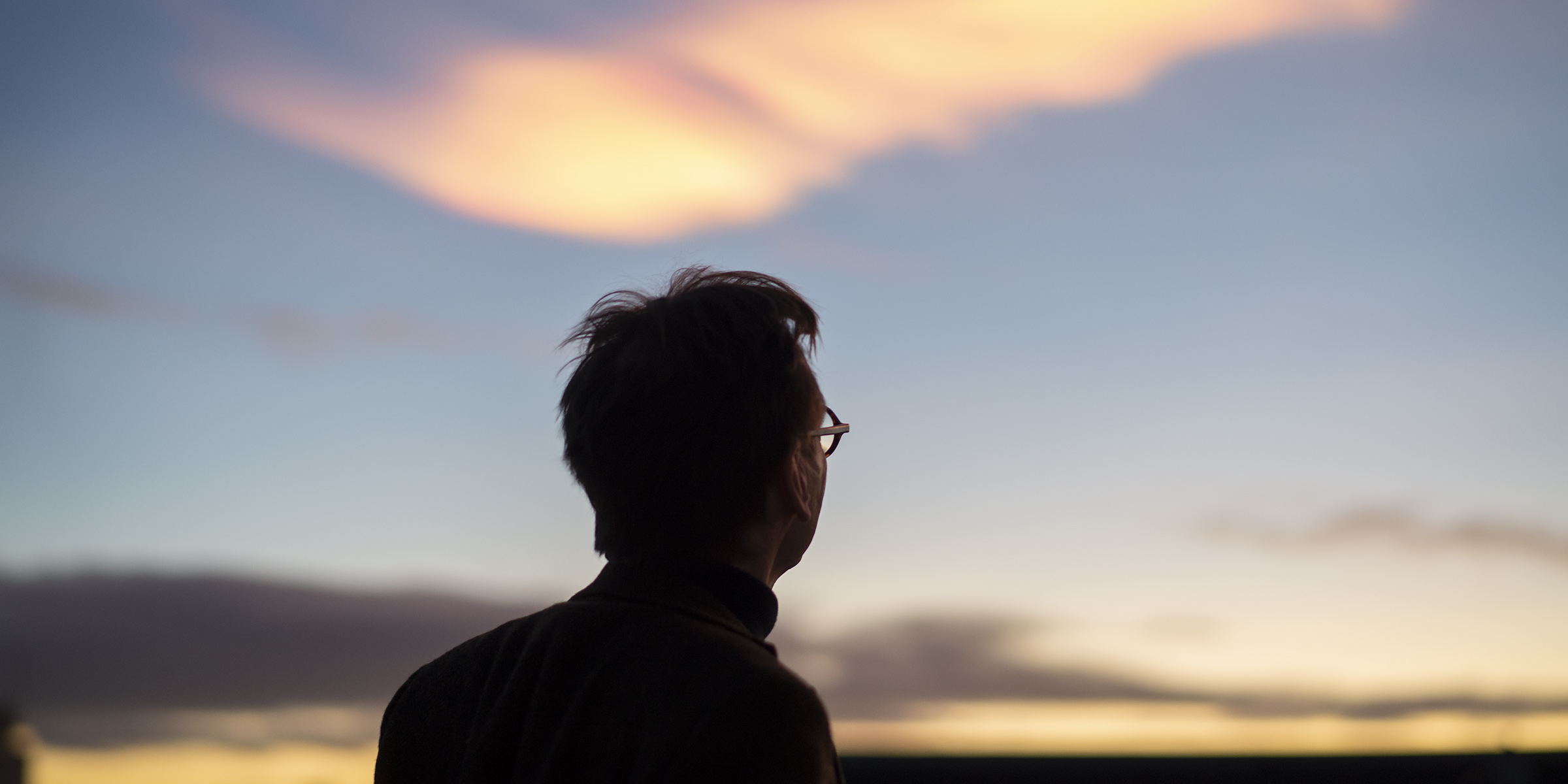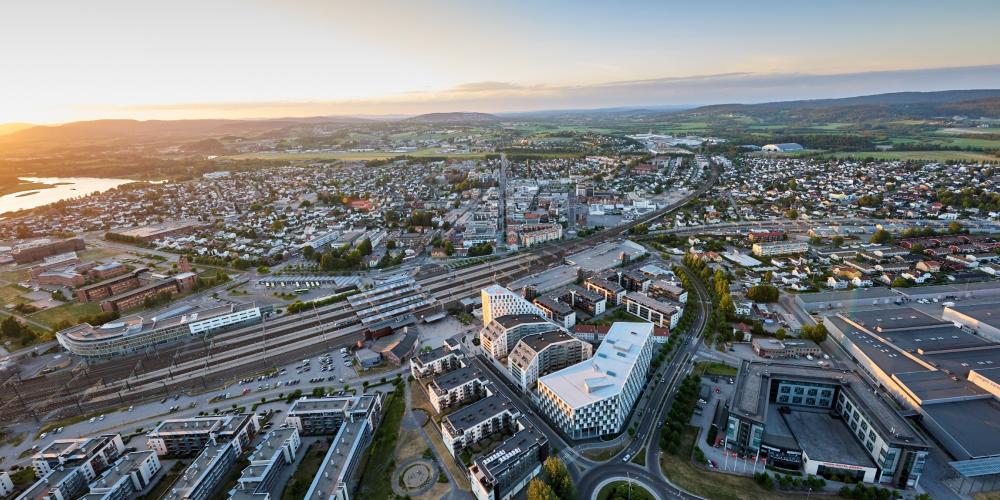Foto: Sonja Balci, OsloMet

Best wishes for Christmas from rector
Rector Christen Krogh summarizes the year with the help of OsloMet's new strategy. He wishes all employees all the best for the Christmas holiday.
Dear colleagues,
At the end of the year, it is natural to look back – and forward. This year, I would like to do so with the help of the new strategy that was adopted on December 15th.
OsloMet is a modern university with a long history. Our first professional education, the midwifery program, is over 200 years old. Later, teacher, engineering, physiotherapy, and nursing programs were added. Several of these programs contributed to women's entry into the workforce. After World War II, new significant education and academic communities were established in the fields of health and social sciences, journalism, administration, management, and economics. OsloMet is a university of professions, and we are also a university of equality.
Many of our students are the first in their family to pursue higher education. We are the university of first-generation students. And many of our students have backgrounds from countries outside Norway, and our university is enriched by the urban diversity surrounding our campuses. We are the university of metropolises.
Ever since the beginning in 1818, our predecessors have contributed to building knowledge and competence for the welfare society. It is difficult to imagine a modern, well-functioning welfare society without the professions we educate for. We are the university of the welfare society. Society also needs knowledge in these areas. OsloMet is a place where academic freedom is strong, where knowledge is exchanged, developed, and challenged. We are the university of research.
Both research and education are closely connected to local challenges. At the same time, they are part of an international academic community with other universities worldwide.
OsloMet University is a university of professions, a university of equality, a university of first-generation students, a university of metropolises, a university of the welfare society, a university of research, and a university in our region, in Norway, and in the world.
As a university, we are not only concerned with what we are good at but also what we are good for. This is also clearly expressed in our vision to develop knowledge that solves society's challenges. The vision is future-oriented because society's need for knowledge is not temporary. It is a continuous need linked to the challenges that society faces at any given time.
Four social challenges
The strategy identifies four persistent societal challenges: a welfare society under pressure, a declining trust in knowledge and democratic values and institutions, ongoing global warming, and geopolitical, economic, and technological unpredictability.
To turn these societal challenges into positive goals, four different sets of commitments have been identified for the university. By fulfilling these commitments, we contribute to the positive societal goals: lasting welfare solutions, a well-functioning democracy, sustainable development, and competence for an unpredictable world.
I will not go through the entire strategy here, but I would like to highlight four commitments that are important and relevant, and where we already have activities.
Under the goal of "Lasting welfare solutions," one of the commitments is that we should be present in Oslo districts and in the municipalities of the metropolitan region. An example of this is the Holmlia initiative, which has started to take shape during 2023. Seminars with young people in the district on artificial intelligence bring new knowledge directly into society. Interprofessional practice involving students from early childhood education and health professions education takes on a concrete and clear meaning when faced with the district's unique issues. Our presence at the Holmlia Center also sends a clear signal that the university is for everyone.
Under the goal of "A well-functioning democracy," one of our commitments is to promote freedom of speech and free access to information nationally and internationally. The research group on Media, War, and Conflict at the Department of Journalism and Media Studies investigates and analyzes journalistic work in and about war, conflict, and peace processes. Free media is an important prerequisite for democracy. The knowledge produced contributes in its own way to promoting the conditions for freedom of speech and free access to information.
Under the goal of "Sustainable development," one of the commitments is to reduce the university's impact on climate and the environment. Of course, like all other knowledge institutions, we must contribute knowledge about the climate and environmental crisis on a broader scale. But as this commitment states, we must also find good ways to work with climate and the environment locally, so that we ourselves contribute in a tangible way. An example from 2023 is the work to enter into more sustainable procurement agreements for catering food, among other things.
Under the goal of "Competence for an unpredictable world," we commit to "ensuring that our students acquire the ability for critical thinking and creativity, as well as harnessing the potential of new technology." Over the past year, artificial intelligence technology has surged into society. Our students should be able to critically reflect on the implications for their own profession while also being able to see the opportunities that arise. For this, we need cross-disciplinary cooperation, which is also a commitment under the goal of "lasting welfare solutions."
Thank you for the collaboration
When we started the strategic work just over a year ago, our goal was to take a long-term perspective, build on the uniqueness of the university, focus on goals and missions, and create a strategy that can be utilized.
I believe the strategy succeeds in accomplishing all of this, and I would like to thank everyone who has contributed, whether in their own academic communities, at events and seminars, by engaging in discussions, or by providing their own specific input.
2023 has been a year full of opportunities and a year in which a great deal of excellent work has been carried out. I want to thank all colleagues for their collaboration. We need contributions from all employees to ensure that we fulfill our societal missions in education, research and development, social improvements, and collaboration.
2023 has also been a year of much unrest in the world. Many of us have been deeply affected by this, especially in the last semester. I therefore encourage all of you to take extra good care of each other during the Christmas season. This is a time of year when many light candles. The same applies at my home. This year, all of our lights are lit for peace.
I wish everyone a Merry Christmas and a Happy New Year, and I look forward to working together with you in 2024.
Regards, Christen










